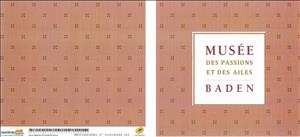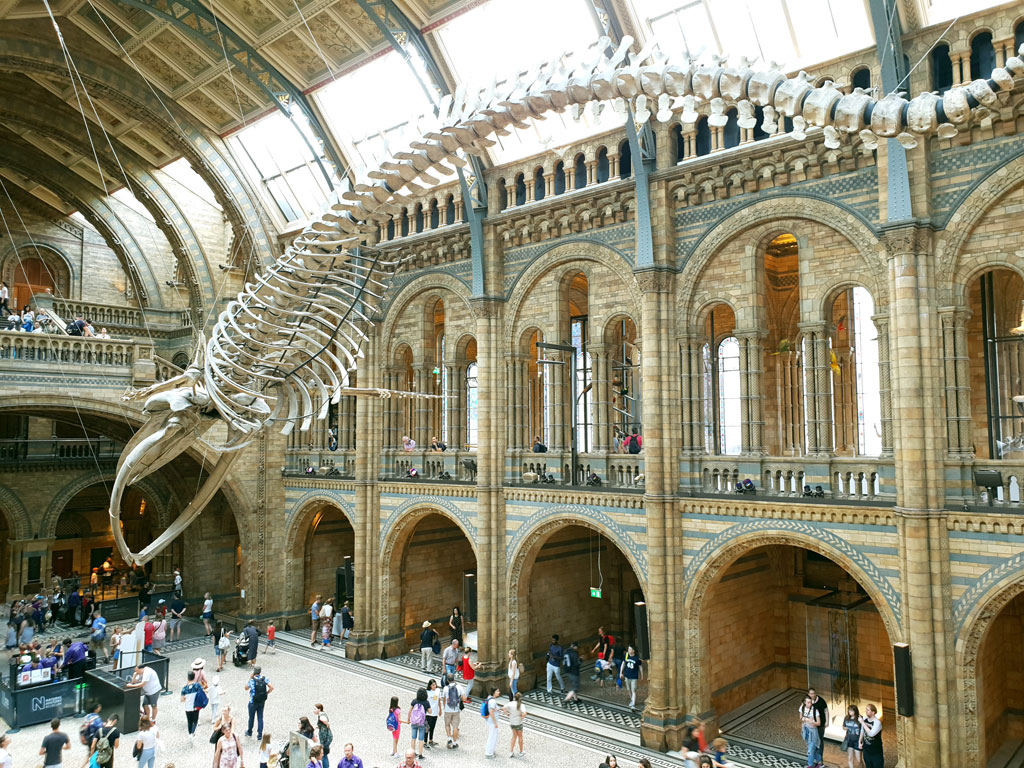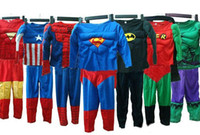Booklet: Baden Museum (France- Personalized stamps 2022)
Baden Museum (France- Personalized stamps 2022)
01 January (France- Personalized stamps ) within release Collector : Baden Museum goes into circulation Booklet Baden Museum face value 4*Prioritaire No Face Value
| Booklet Baden Museum in catalogues | |
|---|---|
| Colnect codes: | Col: FR-MON 2022-47 |
Booklet is square format.
Also in the issue Collector : Baden Museum:
- Booklet - Baden Museum face value 4*Prioritaire;
- Stamp - Baden Museum. 1845 Accordion face value Prioritaire;
- Stamp - Baden Museum. Doll face value Prioritaire;
- Stamp - Baden Museum.Model Boats face value Prioritaire;
Booklet Baden Museum it reflects the thematic directions:
A book is a medium for recording information in the form of writing or images. Books are typically composed of many pages, bound together and protected by a cover. Modern bound books were preceded by many other written mediums, such as the codex and the scroll. The book publishing process is the series of steps involved in their creation and dissemination.
A model is a person with a role either to display commercial products (notably fashion clothing in fashion shows) or to serve as an artist's model or to pose for photography.
A museum (/mjuːˈziːəm/ mew-ZEE-əm) is an institution dedicated to displaying and/or preserving culturally or scientifically significant objects. Many museums have exhibitions of these objects on public display, and some have private collections that are used by researchers and specialists. Compared to a library, a museum hosts a much wider range of objects and usually focus around a specific theme such as the arts, science, natural history, local history, and other topics. Public museums that host exhibitions and interactive demonstrations are often considered to be tourist attractions, and many museums attract large numbers of visitors from outside their host country, with the most visited museums in the world regularly attracting millions of visitors annually.
A musical instrument is a device created or adapted to make musical sounds. In principle, any object that produces sound can be considered a musical instrument—it is through purpose that the object becomes a musical instrument. A person who plays a musical instrument is known as an instrumentalist. The history of musical instruments dates to the beginnings of human culture. Early musical instruments may have been used for rituals, such as a horn to signal success on the hunt, or a drum in a religious ceremony. Cultures eventually developed composition and performance of melodies for entertainment. Musical instruments evolved in step with changing applications and technologies.
An aircraft pilot or aviator is a person who controls the flight of an aircraft by operating its directional flight controls. Some other aircrew members, such as navigators or flight engineers, are also considered aviators because they are involved in operating the aircraft's navigation and engine systems. Other aircrew members, such as drone operators, flight attendants, mechanics and ground crew, are not classified as aviators.
In clothing, a suit is a set of garments made from the same cloth, usually consisting of at least a jacket and trousers. Lounge suits (also known as business suits when sober in colour and style), which originated in Britain as country wear, are the most common style of Western suit. Other types of suit still worn today are the dinner suit, part of black tie, which arose as a lounging alternative to dress coats in much the same way as the day lounge suit came to replace frock coats and morning coats; and, rarely worn today, the morning suit. This article discusses the lounge suit (including business suits), elements of informal dress code.
A toy or plaything is an object that is used primarily to provide entertainment. Simple examples include toy blocks, board games, and dolls. Toys are often designed for use by children, although many are designed specifically for adults and pets. Toys can provide utilitarian benefits, including physical exercise, cultural awareness, or academic education. Additionally, utilitarian objects, especially those which are no longer needed for their original purpose, can be used as toys. Examples include children building a fort with empty cereal boxes and tissue paper spools, or a toddler playing with a broken TV remote control. The term "toy" can also be used to refer to utilitarian objects purchased for enjoyment rather than need, or for expensive necessities for which a large fraction of the cost represents its ability to provide enjoyment to the owner, such as luxury cars, high-end motorcycles, gaming computers, and flagship smartphones.





